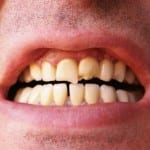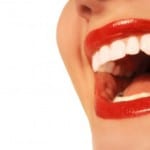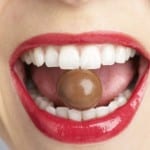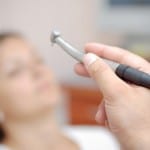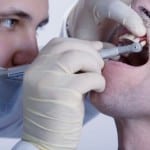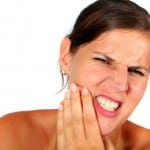 A dental emergency can happen to anyone. We never know when one is going to occur and it is probable that you will require treatment immediately to fix it. This is why we offer emergency appointments to our patients. They can be necessary for a number of problems, highlighted below:
A dental emergency can happen to anyone. We never know when one is going to occur and it is probable that you will require treatment immediately to fix it. This is why we offer emergency appointments to our patients. They can be necessary for a number of problems, highlighted below:
Knocked Out Teeth
If one of your teeth gets knocked out, you should gently lift it by the crown and clean it with care. Sometimes there will still be gum tissue so you can leave this and carefully return the tooth to the empty socket. Alternatively, place the tooth into a container filled with milk or hold it next to the cheek inside your mouth until you reach the dentist. You should make an appointment as soon as possible to increase the chance of saving the tooth.
Broken Teeth
If part of a tooth has been knocked out or damaged following an accident you should call immediately for an emergency appointment. In the meantime ease any pain or swelling by cleaning your mouth with warm water and using a cold compress on the swollen area.
Bitten Lip or Tongue
If you accidentally bite your tongue or lip so badly that you are bleeding and in pain, go to an emergency room as stitches may be necessary. This should only be done if the bleeding cannot be stopped with a cloth or compress.
Possible Broken Jaw
You may need to visit the hospital if your jaw has suffered an accident or injury. Swelling can be eased by using a cold cloth.
Toothache
Toothache can happen for a few reasons, but the most common one is dental infection. If it gets worse with time, rinsing your mouth with warm water can help, followed by gentle flossing to get rid of any food debris that can lead to infection. Corsodyl or another specialist mouthwash can help prevent excess bacteria. If the pain persists contact your dentist for treatment so that the infection does not spread.
If you do use painkillers to help with pain in gums and teeth, it is important not to allow them to rest on the gums as they will lead to burning in the gum tissue.





